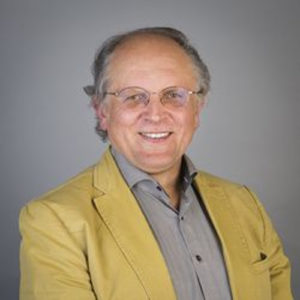Prof. Dr. Manfred Krifka
Leibniz-Zentrum Allgemeine Sprachwissenschaft (ZAS)
Prof. Dr. Manfred Krifka war bis September 2022 Direktor des Leibniz-Zentrums Allgemeine Sprachwissenschaft und hat außerdem eine Professur am Institut für Deutsche Sprache und Linguistik an der Humboldt-Universität zu Berlin inne. Am ZAS werden von ihm folgende Projekte geleitet:
- DFG-Projekt A02 Sprecherwahl in Kreolsprachcommunities: Bislama and Morisien im Rahmen des SFB 1412 Register: Language-Users’ Knowledge of Situational-Functional Variation
- BMBF-Projekt QUEST – Quality – Established: Erprobung und Anwendung von Kurationskriterien und Qualitätsstandards für audiovisuelle, annotierte Sprachdaten
- ERC-Projekt SPAGAD – Sprechakte in Grammatik und Diskurs
- DFG-Projekt PSIMS – The Pragmatic Status of Iconic Meaning in Spoken Communication: Gestures, Ideophones, Prosodic Modulations (mit Cornelia Ebert und Susanne Fuchs)
- DFG-Projekt MUQTASP – Probabilistische Modellierung der Verwendung von Quantoren durch typische und atypische Sprecher (mit Uli Sauerland)
- Förderung durch die Berliner Senatsverwaltung für Wirtschaft, Technologie und Forschung: Interdisziplinärer Forschungsverbund IFV – Sprachentwicklung von Grundschulkindern mit Migrationshintergrund (mit Natalia Gagarina)
Manfred Krifka untersucht Aspekte der sprachlichen Bedeutung und des Sprachgebrauchs mit formalen und experimentellen Methoden und untersucht ozeanische Sprachen.
Projects
A02
Speaker's choices in a creole context: Bislama and Morisien
Contact
ZAS, Pariser Str. 1, 10719 Berlin
+49 30 20192 400
krifka@leibniz-zas.de https://orcid.org/0000-0002-9610-8352
Publications & Presentations
Veenstra, Tonjes; Krifka, Manfred; Akbari, Roodabeh; Buchmüller, Olga; Chark, Jordan; Döring, Sophia; Golcher, Felix; Schmidt, Peter (2023) Podcast: Sprachen aus dem Schnellkochtopf: Register in Kreols (Teil 1) [ViVo] Kreolsprachen sind ein Wunder der Linguistik. Innerhalb weniger Generationen entstehen diese Sprachen dort, wo Menschen ohne gemeinsame Sprache miteinander kommunizieren müssen. Unser Projekt A02 "Speaker's choices in a creole context: Bislama and Morisien" untersucht zwei Kreolsprachen aus Melanesien und Mauritius. Wir sprechen mit Manfred Krifka und Tonjes Veenstra.Lüdeling, Anke; Alexiadou, Artemis; Adli, Aria; Donhauser, Karin; Dreyer, Malte; Egg, Markus; Feulner, Anna Helene; Gagarina, Natalia; Hock, Wolfgang; Jannedy, Stefanie; Kammerzell, Frank; Knoeferle, Pia; Krause, Thomas; Krifka, Manfred; Kutscher, Silvia; Lütke, Beate; McFadden, Thomas; Meyer, Roland; Mooshammer, Christine; Müller, Stefan; Maquate, Katja; Norde, Muriel; Sauerland, Uli; Szucsich, Luka; Verhoeven, Elisabeth; Waltereit, Richard; Wolfsgruber, Anne; Zeige, Lars Erik (2020) Register: Language Users’ Knowledge of Situational-Functional Variation In: REALIS: Register Aspects of Language in Situation [DOI] [PDF] [ViVo] The Collaborative Research Center 1412 “Register: Language Users’ Knowledge of Situational-Functional Variation” (CRC 1412) investigates the role of register in language, focusing in particular on what constitutes a language user’s register knowledge and which situational-functional factors determine a user’s choices. The following paper is an extract from the frame text of the proposal for the CRC 1412, which was submitted to the Deutsche Forschungsgemeinschaft in 2019, followed by a successful onsite evaluation that took place in 2019. The CRC 1412 then started its work on January 1, 2020. The theoretical part of the frame text gives an extensive overview of the theoretical and empirical perspectives on register knowledge from the viewpoint of 2019. Due to the high collaborative effort of all PIs involved, the frame text is unique in its scope on register research, encompassing register-relevant aspects from variationist approaches, psycholinguistics, grammatical theory, acquisition theory, historical linguistics, phonology, phonetics, typology, corpus linguistics, and computational linguistics, as well as qualitative and quantitative modeling. Although our positions and hypotheses since its submission have developed further, the frame text is still a vital resource as a compilation of state-of-the-art register research and a documentation of the start of the CRC 1412. The theoretical part without administrative components therefore presents an ideal starter publication to kick off the CRC’s publication series REALIS. For an overview of the projects and more information on the CRC, see https://sfb1412.hu-berlin.de/.Krifka, Manfred (2022) Modality in Daakie In: Multiple Modality [ViVo]